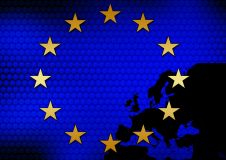The Digital Agenda in the Light of Geoinformation
GIM International Interviews European Commissioner Neelie Kroes
Since geoinformation is one of the most desired re-usable information sets, the valuable data that is available through INSPIRE will also be accessible through the new pan-European data portal, says European Commissioner Neelie Kroes in this interview with GIM International. Complaints from the sector that there is a missing link between the Digital Agenda and geoinformation are not shared by Europe’s most powerful woman on e-issues today. The Digital Agenda will benefit from the experiences with INSPIRE, she says.
(By Durk Haarsma, publishing director, GIM International)
You are very much an advocate of open data. Is there any evidence of open data’s impact so far, beyond increased download volumes?
I am a big supporter of open data which is widely available and accessible, for free and with no restrictions at all associated with its re-use. Our latest available figures suggest that those institutions that have lowered their prices have not only seen demand volumes expand strongly (there have been increases of up to 7,000%), but that sales revenues can remain stable or even increase after drastic price cuts due to the growing demand. Implementing an open data policy has the additional advantage that transaction costs decrease significantly, since not only do administrative costs – such as invoicing – diminish but costs related to monitoring compliance with license arrangements disappear too. In addition, open data improves its quality, since any deficiencies in the data can be promptly flagged and reported back by users. When the interest in data quality is shared, quality control is partly outsourced.
Are we seeing new business, for instance in IT, arising from the EU’s open data policy?
By making public data widely available and accessible, opportunities for re-use have multiplied in recent years. We are seeing both start-ups and established companies benefiting from opening up data. While established companies may have the money to pay high prices and the patience to go through complicated discussions with data-holding public sector bodies, start-ups and/or SMEs have neither the time nor the resources. Open data attracts new types of re-users, in particular SMEs, which can subsequently re-use data by integrating it into new products and services and can thus enter new markets which were previously closed to them. For example, Data Publica in France acts as a data broker, or Husetsweb in Denmark develops smartphone applications re-using open data.
How is the implementation of the open data portal progressing?
The Commission is working towards the creation of two interlinked European data portals. We are currently working on an open data portal to make the Commission’s own data resources easily accessible and usable through one single access point. And we will push the other European institutions and agencies to join us. Progress is developing smoothly, and we aim to have a working version of the portal ready to be launched this summer. The Commission is also working with Member States, public sector bodies, and regional and local aggregators to establish a pan-European data portal. We will be launching a prototype in 2013 providing access to datasets from EU public administrations at all levels: EU, national, regional and local. Between 2014 and 2020, we will be progressively setting up the EU-wide Open Data infrastructure within the Connecting Europe Facility that is currently being discussed by the European legislator.
Will there be a link to the INSPIRE portal?
The objective of the portal is to facilitate access to data resources, and in particular to those that have the highest re-use potential. In this context, geographical information has frequently been highlighted as one of the most desired re-usable information sets. Therefore, we will try to make the necessary arrangements to ensure that the valuable data available through the INSPIRE portal can also be discovered and re-used through the pan-European data portal.
Professionals in the geospatial community feel that there is a missing link between the Digital Agenda and INSPIRE in particular and geoinformation in general. Do you agree? And how come the Digital Agenda makes no mention of geoinformation whatsoever?
No, I don't see any missing link since both geographical and environmental information are large subsets of the Public Sector Information (PSI) domain. PSI re-use has been highlighted as a key driver in developing content markets in Europe, as raw public data can be mashed up and re-used by third parties to create new products and services, including in the environmental domain. This will generate new jobs and business opportunities, and provide consumers with more choice and more value for money, as well as leading to information services at the service of the environment. In my view, INSPIRE and PSI complement each other, since INSPIRE fosters sharing and re-use between public authorities while PSI stimulates the use of the data covered by INSPIRE for third parties too. INSPIRE integrates various Digital Agenda for Europe (DAE) actions, such as the eGovernment Action Plan 2011-2015 for example that entails the further development of eEnvironment services, and these are facilitated by the implementation of INSPIRE.
In geoinformation, there is a lot of work being done on interoperability and standards, and these are also identified as pillars for the Digital Agenda. Would it not be useful to learn from all the work being done in the geoinformation field?
The development of interoperability and standards is important in order to facilitate access and maximise re-use, since it can eliminate inefficiencies, reduce ICT integration costs and enable the adoption of new and emerging technologies. A thematic network on standards and interoperability will be launched in 2013, and I look forward to the strong participation of the GI community so that they can share their experiences with other stakeholders and communities.
What is your opinion of INSPIRE?
I personally believe that the INSPIRE directive has been hugely successful. Not only has it improved the sharing of data relevant for the environment and other policies between public authorities across the EU, but also by creating common standards that enable geographic and environmental information to be quickly and easily accessible, it is allowing third parties who may be developing applications for energy efficiency, transport and agriculture, for example, to benefit too. This offers clear benefits for European citizens, by improving emergency response reaction services for example, for policymakers by improving the basis for decision-making, and also in terms of underpinning scientific research and ultimately the deployment of innovative and sustainable technologies.
Should such initiatives not be left to the market instead of Brussels?
I think that almost all levels of government – EU, national, regional and local – have datasets with an element of spatial data. If different stakeholders are to benefit from all the datasets, there is a real collective need to ensure that the datasets are reliable, interoperable and accessible through the necessary infrastructure. This type of coordination can only take place at EU level so that we can all benefit from the adaptation to INSPIRE rules.
Does INSPIRE meet your expectations as Commissioner responsible for the Digital Agenda?
Whilst believing that INSPIRE has been a huge success, we should not forget that its full implementation will still take several years. The Digital Agenda will both support and benefit from this. Also, we should not become complacent with any given policy. There are always areas in which we can improve. For example, we can already see benefits from extending the current INSPIRE scope to more than policies that have an impact on the environment.
Do you see INSPIRE and the Digital Agenda as projects that could have an impact beyond Europe? Is there any interest from other regions in the world in what Europe is deploying in this field?
In today's digital world, any policy and action that we implement in Europe has immediate repercussions beyond our borders. In many areas we are setting the pace, and others are following our policies and or initiatives. Take GÉANT, for example, the high-bandwidth pan-European research and education backbone that interconnects National Research and Education Networks (NRENs) across Europe. GÉANT has extensive links to networks in other world regions including North America, Latin America, North Africa and the Middle East, South Africa and Kenya, the South Caucasus, Central Asia and the Asia-Pacific Region – reaching over 50 NRENs and a further 45 million users outside of Europe. As for INSPIRE, it has already raised the interest of many, ranging from our neighbouring countries to China and South America, where it is seen as a policy model for developing their data infrastructures. We have also been working together with the United Nations and the World Bank. Just recently, for example, the United Nations Economic and Social Council communicated that "building the infrastructure for the gathering, validation, compilation and dissemination of geospatial information is as important for countries as the building of roads and telecommunications."
What is your major concern regarding open data?
My major concern with open data is that public administrations are still not opening up their data or, if they are, they are not doing it fast enough. In the digital age, data takes on a whole new value and with new technologies it provides the fuel for a future ‘digital’ economy. It is a rich resource for innovation – already a market worth tens of billions of Euros – and we could double that. . .
In what way is data protection part of the Digital Agenda?
Data protection is at the heart of the Digital Agenda. One of its key actions is to reform the EU's data protection rules which date from 1995. Since then, technological progress and globalisation have profoundly changed the way our data is collected, accessed, used and re-used. In January 2012, the Commission put forward its proposal for a reform focusing on ways to strengthen online privacy rights and boost Europe's digital economy.
Also taking into account privacy issues of European citizens?
Of course. When it comes to the online privacy of European citizens, I want to see the focus on the three key principles of transparency, fairness and user control. Transparency so that citizens know exactly what the deal is. Fairness so that citizens are not forced into sharing their data. And user control so that citizens can decide – in a simple and effective manner – what they allow others to know.
There is a proposed revision to the directive on re-use of public sector information (98/2003/EC). What are the improvements compared to the current directive? Do you see any consequences for geoinformation, such as that gathered by national cadastral organisations for instance?
Our current draft proposal for the PSI re-use directive aims towards fully unlocking its full socio-economic potential. The overall economic gains from opening up public sector information further by allowing easy access and re-use are in the order of EUR40 billion a year for the 27 EU member states. The main features of the current proposal are: “All public data will become re-usable by default, exceptions may apply. Thus, the Directive creates a genuine right to re-use public information, absent from the original Directive; ii) The general rule for charging will be that public sector bodies can charge at maximum the marginal cost for disseminating the information; iii) Data should be made available in machine-readable formats where possible; and iv) There will be independent supervision of the implementation of the rules in all the Member States.” Obviously this proposal will impact national cadastres, and many of them may need to revisit matters such as their charging policy, for example.
Do you have any recommendations for the geospatial information community in general and its professionals in particular?
I have good reasons to believe that there is a great potential within this community to develop a vibrant ecosystem around open GI data. I encourage them to make good use of the open GI data that is being made available to them; to demonstrate that when the data is made available under the appropriate conditions, they do actually re-use it and create wonderful opportunities with open data.
Neelie Kroes
Neelie Kroes has been vice president of the European Commission responsible for the Digital Agenda since 2010. She previously held the position of the EU’s Competition Commissioner from 2004 until 2010. Ms. Kroes, born in 1941 in Rotterdam, The Netherlands, earned a degree in economics at the Erasmus University in Rotterdam and worked in Dutch politics from 1971 to 1989, including as Minister for the postal and telephone sectors. She subsequently had roles on the executive boards of various companies, predominantly in the transport and logistics sector. In 1991, she became chair of Nyenrode University, Breukelen, The Netherlands.

Value staying current with geomatics?
Stay on the map with our expertly curated newsletters.
We provide educational insights, industry updates, and inspiring stories to help you learn, grow, and reach your full potential in your field. Don't miss out - subscribe today and ensure you're always informed, educated, and inspired.
Choose your newsletter(s)
























